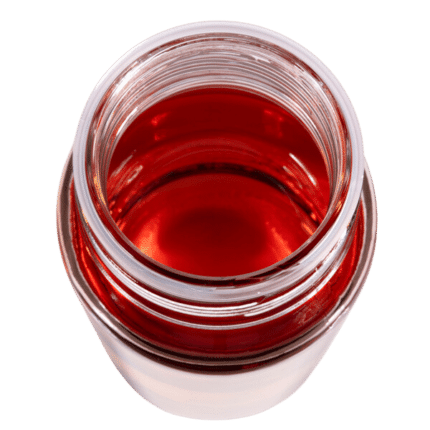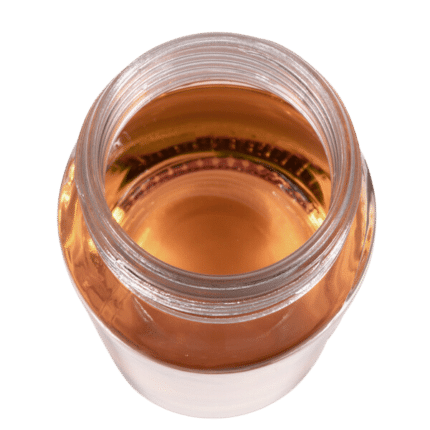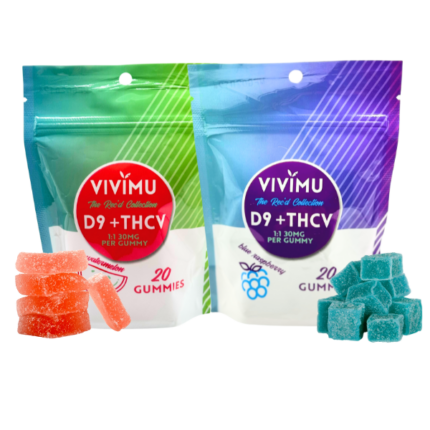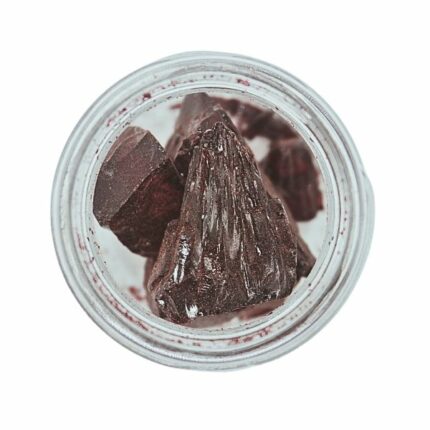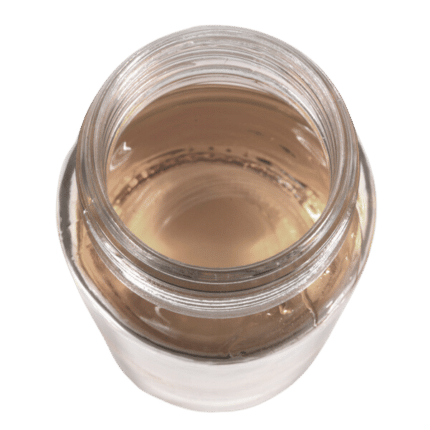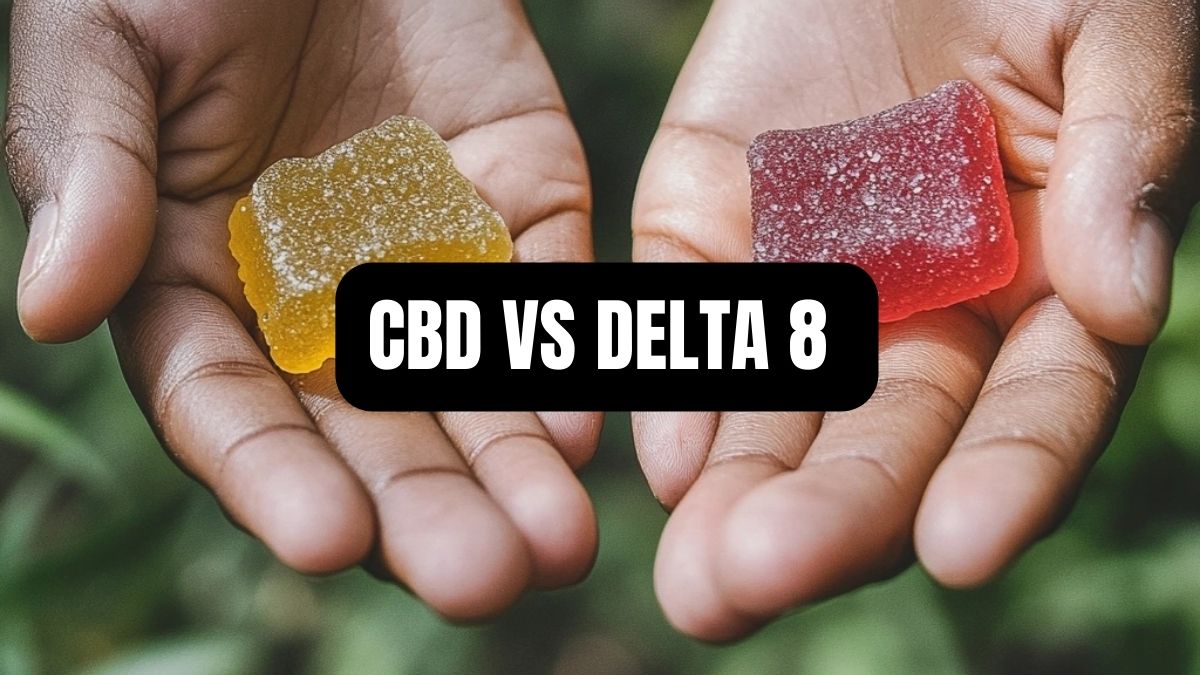
Are you curious about the showdown between HHC and THC? You’re in the right place. At Vivimu, we’ve got the scoop on what sets these two cannabinoids apart so you can make the best choice for your wellness routine. Whether you’re a seasoned pro or new to the game, understanding the ins and outs of HHC vs. THC is key to maximizing your experience.
Over the past few decades, the U.S. has been making serious moves toward cannabis legalization. While marijuana still plays hard to get on the federal level, many states have opened the door to legal medical and recreational use. And thanks to the 2018 Farm Bill, hemp-derived cannabis containing 0.3% or less THC is now federally legal, paving the way for exciting new discoveries in the cannabinoid world like HHC.
HHC, or hexahydrocannabinol, is one of those lesser-known cannabinoids that’s starting to shine. HHC, which can be synthesized or extracted from hemp, provides a legal substitute for conventional cannabis products that contain higher THC concentrations. But when it comes to HHC vs. THC, how do they stack up?
Are they similar? Absolutely, but each brings something different to the table. Depending on your needs and preferences, one might be the better fit for you. So, what’s the real difference between HHC and THC? Is one more aligned with your vibe? Here’s what you should know to improve your lifestyle and make wise decisions.
Ready to explore more? Let’s get into all the details on HHC vs. THC.
Key Takeaways
- HHC vs. THC: HHC offers a lighter, more clear-headed experience, while THC is known for its potent psychoactive effects. Your choice depends on your personal taste and desired potential effects.
- Legal Status: THC’s legality varies by state and remains federally illegal, while HHC, derived from hemp, generally enjoys legal status under the 2018 Farm Bill, though some states have introduced specific regulations.
- Chemical Differences: HHC is hydrogenated THC, making it more stable and slightly milder. This chemical tweak impacts how each interacts with the endocannabinoid system.
- Shelf Life: Both HHC and THC have good shelf lives when stored properly, but HHC’s stability might give it an edge in long-term storage, similar to how durable sneakers last longer with proper care.
What Is HHC?
HHC, or hexahydrocannabinol, might sound like a new kid on the block, but it’s actually been around since the 1940s. Like THC, HHC is a cannabinoid found in the cannabis plant, though it’s only recently started to get the spotlight it deserves. Back in the day, chemist Roger Adams first synthesized HHC by hydrogenating THC, but now, thanks to advancements in cannabinoid research, it’s making waves as a stand-alone product.
So, what makes HHC different from its more famous cousin, THC? It all comes down to chemistry. HHC’s structure is similar to THC but with one key difference: it lacks the double bond on the ninth carbon atom and has a bit more hydrogen. While this might sound like a minor tweak, it actually plays a big role in how HHC interacts with your body.
HHC is one of those cannabinoids that occur naturally in the cannabis plant, but it’s usually found in trace amounts, typically less than 1%. Because of its rarity, isolating and extracting HHC from marijuana or hemp is a complex and costly process. That’s why most of the HHC you’ll find in today’s market is synthetically produced.
Like other cannabinoids, HHC is part of the entourage effect in full-spectrum products, contributing to the overall impact of the plant’s compounds working together. But on its own, HHC offers a unique experience, making it an exciting option for those looking to explore beyond the usual THC or CBD offerings.
Potential Benefits and Uses
While research on HHC is still limited, some studies suggest it may have similar benefits to THC, like helping you chill out, reducing certain issues, and potential sleep support. It’s like the Swiss Army knife of cannabinoids – versatile and ready to tackle any problem you throw its way. Just don’t expect it to be approved by the FDA anytime soon; they’re like the fun police when it comes to these things.
Potential Effects on the Mind and Body
HHC is believed to interact with the endocannabinoid system, similar to THC, but the specific effects are still a mystery. Some users report feeling a “high” or euphoric sensation, while others feel more subtle effects. It’s like the Rorschach test of cannabinoids – everyone sees something different.
Legal Status and Restrictions
When it comes to legal status, THC and HHC differ noticeably. While THC’s legality is tightly regulated, especially at the federal level, HHC operates in a bit of a gray area. The 2018 Farm Bill makes hemp-derived products like HHC generally legal as long as they contain 0.3% THC or less. This means that HHC can be legally manufactured, distributed, possessed, and transported across most of the U.S.
However, the plot thickens when we dive into synthetic versions of trace cannabinoids like HHC. Although the 2018 Farm Bill doesn’t explicitly address these synthetics, they’ve largely been assumed to fall under the same legal protections. But, as you might expect, some states aren’t leaving things to chance. They’ve begun to introduce specific legislation to regulate synthetic cannabinoids, adding another layer to the legal landscape.
On the other hand, marijuana with higher THC content is still federally illegal, creating a patchwork of state laws that can vary widely. So, before diving into the world of cannabis and cannabinoids, it’s crucial to get familiar with the laws in your state to ensure you’re on the right side of the law.
What Is THC?
THC, or tetrahydrocannabinol, is the original superstar of the cannabinoid world, the Michael Jordan of cannabis if you will. It’s the compound that put cannabis on the map, celebrated for its potent psychoactive effects that have been both revered and researched for centuries. Whether you’re talking about its use in ancient healing practices or its modern-day role in both medicinal and recreational contexts, THC has always been the headliner, drawing attention to its abilities and effects.
-
 Delta 9 THCp Distillate$24.99 – $584.99
Delta 9 THCp Distillate$24.99 – $584.99 -
 Delta 9 THCh Distillate$34.99 – $369.99 – or subscribe
Delta 9 THCh Distillate$34.99 – $369.99 – or subscribe
Think of THC as the Beyoncé of the hemp universe instantly recognizable, endlessly influential, and a force to be reckoned with. Everyone knows its name, and most people have a pretty good idea of what it can do. From providing support to delivering that euphoric high cannabis is famous for, THC has become synonymous with the cannabis experience. Its widespread recognition and powerful effects have cemented its place as the most well-known and widely used cannabinoid in the world.
Potential Effects on the Body and Mind
When it comes to choosing between HHC, CBD, and THC, understanding what THC brings to the table is key. The endocannabinoid system is influenced by THC through its binding to CB1 receptors in the brain and other regions of the body. THC has been the go-to compound for recreational use for years, mainly because of its well-known psychoactive effects. It’s the reason why marijuana has long been associated with that unmistakable “high” and why it’s been a controlled substance for so long.
However, as the landscape changes with state-level legalization for both medical and recreational use, THC has become a major player in the world of cannabinoids. It’s the life of the party, known for delivering an experience that’s as varied as the people who use it. Depending on the type, amount, and personal tolerance, THC can take you on a journey that’s anything but predictable.
Whether it’s enhancing your sense of relaxation, sparking a creative spark, or just making that movie night way more interesting, THC is known for creating a wide range of sensations. But it’s not all fun and games. THC can also bring some intense feelings like paranoia or anxiety, depending on how much you use and your personal reaction to it. So, it’s always a good idea to start slow and know your limits. At Vivimu, we’re here to help you navigate these choices with confidence.
Legal Status and Restrictions of THC
In the United States, marijuana law is still very much in its infancy. Although it is still illegal on a federal level, many states have welcomed reform and are moving in the direction of legalizing it for both recreational and medical purposes. As it stands, only four states still maintain a complete ban on marijuana, leaving the other 46 states in various stages of legalization or decriminalization.
Marijuana is completely legal in some states for both medical and recreational purposes, allowing residents to enjoy it in a variety of ways. Other states have taken a more cautious approach, allowing marijuana only for medical purposes and often only for specific conditions. Then there are those states that have opted to decriminalize marijuana, meaning that getting caught with a small amount might earn you a fine or a mandatory treatment program but not a criminal record.
The push for federal reform hasn’t been without effort. In the 117th Congress (2021–2022), the decriminalization and de-scheduling of cannabis was the goal of the H.R. 3617 bill. Unfortunately, it didn’t make it through both the House and Senate, and it hasn’t been reintroduced in the current session. With each state establishing its own laws, marijuana laws continue to be governed by state law for the time being.
Difference Between HHC and THC
While HHC and THC share some similarities, there are also key differences, like chemical composition and legal status. Though they are similar in many aspects, HHC and THC are like brothers and sisters; each has a distinct personality. THC is the OG, the one that’s been around the block a few times, while HHC is the up-and-comer trying to make a name for itself.
Chemical Composition and Properties
The double bond on the ninth carbon atom, in particular, makes THC stand out from the other cannabinoid compounds. This specific feature allows THC to bind more strongly with CB1 receptors in the endocannabinoid system (ECS), leading to the potent effects that many users associate with THC.
On the other hand, HHC’s chemical makeup is a bit different, thanks to a process called hydrogenation. During hydrogenation, the double bond of Delta-9 THC is replaced with hydrogen, resulting in a molecule that’s more stable but also a bit milder in its effects. This tweak in the chemical structure makes HHC less prone to oxidation, giving it a longer shelf life and a slightly different interaction with the ECS compared to THC.
Similarities Between HHC and THC
Despite their differences, HHC and THC also share some similarities, like the way they interact with the endocannabinoid system. They’re like the Olsen twins of the cannabis world – different in many ways but still part of the same family. They may have different effects, but they’re both trying to achieve the same goal: making you feel good.
Is HHC Stronger Than THC?
No is the overall consensus, but when it comes to the question, “Is HHC stronger than THC?” It is not as simple as you might think to answer that. HHC is generally known for offering a lighter, more clear-headed experience compared to THC. Some users might perceive this as HHC being less “strong,” but strength is subjective and can vary greatly depending on individual experience and tolerance.
-
 REC’d HHC Gummies$29.99 – or subscribe
REC’d HHC Gummies$29.99 – or subscribe
Remember, stronger doesn’t always mean better. What’s most important is finding what works for you. Your unique body chemistry, desired effects, and comfort level with cannabis will play a big role in determining which cannabinoid suits you best. So, don’t hesitate to experiment whether you lean towards the clarity of HHC, the intensity of THC, or perhaps a mix of both; discovering your perfect balance is all part of the journey.
THC vs HHC: Comparison of Shelf Life
The shelf life of HHC and THC can differ based on how well you store them, with factors like exposure to light, air, and temperature playing a crucial role. Generally speaking, both cannabinoids are quite stable and can maintain their potency for several months when kept in ideal conditions. Depending on the type of product, like HHC, gummies will expire faster than an HHC distillate would. However, just like a fresh pair of Jordans versus a pair of Crocs, while both can last a decent amount of time, one might be a bit more durable and retain its quality longer under the right care. Proper storage away from heat, light, and air can help ensure that your HHC or THC products stay effective and fresh. So, treat them with the same care you’d give your favorite kicks to get the most out of them!
Which Is Better for You: HHC or THC?
The choice between THC and HHC ultimately depends on individual preferences and needs, like choosing between a night out with your friends or a night in with Netflix. If you are eligible for medical marijuana, you might be better off sticking with THC-containing products as they are the tried-and-true favorites. But if you’re looking for something a little different, HHC might be worth a try. It’s like the difference between ordering a Big Mac and trying a new item on the menu – both can be good, but one might surprise you.
-
 Delta 9 THCv Gummies$14.99 – $39.99 – or subscribe
Delta 9 THCv Gummies$14.99 – $39.99 – or subscribe -
 Delta 9 THCv Isolate$19.99 – $124.99 – or subscribe
Delta 9 THCv Isolate$19.99 – $124.99 – or subscribe -
 Delta 9 THCb Distillate$34.99 – $369.99 – or subscribe
Delta 9 THCb Distillate$34.99 – $369.99 – or subscribe
Where to Find the Best HHC and THC Products Online?
At Vivimu, we’ve got you covered with a premium selection of HHC Products and THC offerings that include everything from HHC Gummies to HHC Disposable Vapes, HHC Distillate, and even HHC Live Resin. To ensure purity and potency, our products are made from premium hemp and put through a rigorous testing process. It is like deciding between a homemade meal and one from a Michelin-starred restaurant, and there is no comparison. Whether you’re after the clarity of HHC or the intensity of THC, Vivimu has the goods. Scroll through our collection like you’re finding that perfect Netflix movie. You’re bound to discover your new favorite!
Final Thoughts – HHC vs THC
HHC and THC are like the Yin and Yang of the cannabis world, each with their own unique superpowers and devoted fanbase. While more research is needed to fully understand their effects and potential benefits, it’s clear that both have a lot to offer for those interested in exploring the world of cannabis and hemp. Whether you choose HHC or THC, it’s important to use responsibly and in accordance with local laws and regulations, like when you’re deciding whether to have a second slice of pizza or call it a night. Remember, if you are interested in HHC and other cannabinoid products, please give us a try at Vivimu; you won’t regret it!
If you want to know more, visit our blog section or contact us via email at support@vivimu.zendesk.com. In order to get any questions or concerns answered, you can also give us a call at +1 720-955-1667. Our cannabis expert support team is here to help you, like your personal Yoda when it comes to all things cannabis.


